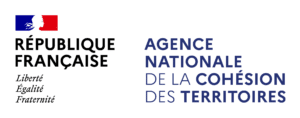
Join the session
Click here for the French translation.
Cliquez ici pour la traduction française.
This is the first of two events on urban living labs of the French Presidency of the Council of the EU. Please click here for more information and registration for the the training session “Let’s co-create! But how to start?“
Over the last ten years, co-creative experimental methods have become widely spread to address urban challenges in Europe. These endeavors reflect the need for open, collaborative approaches taking into account the full complexity of urban dynamics for sustainable transitions. The presenters and panelists of this will discuss the potentials and limitations of experimental methods for urban transformation. It will highlight why we need to do things and experiment more to collectively shape our urban future(s).
Experimental approaches and methods, such as urban living labs, usually involve high levels of co-creation among involved stakeholders bringing together public administration, researchers, civil society (organizations) and other urban actors to work together on a variety of urban issues including urban governance, water management, e-participation, mobility management, taking into account all the inhabitants and improving their relationship when necessary, stakeholder involvement, etc.
Co-creative and experimental approaches have been proven to be suitable to address concrete urban challenges as they allow the combination of experiences, perspectives and knowledge. By combining and jointly developing approaches and addressing urban challenges, more robust ideas and results are developed which take into account urban complexities and urban dilemmas[1] which are key to sustainable urban development.
In other words, the co-production of knowledge and approaches in experimental projects is all about collectively shaping urban futures including models of governance and societal development. Experimental approaches can play an essential role in developing new, but also translating already existing, approaches and good practices into different urban contexts.
This session will discuss the potentials and limitations of experimental methods in urban development for change to sustainable and livable urban futures. It will shed light on the how urban living labs can support the capacity building of municipal and urban public administration and other stakeholders involved to plan for change and learn from successes and failures. Among others, the following questions will be addressed by the presenters and in the panel discussion:
- How can experimenting then become the “new normal” to address urban challenges?
- What capacities are required for innovative leadership? And what are the risks involved?
- How can experimental methods / urban living labs support the localization of European global sustainability strategies such as the New Green Deal, the Leipzig Charta and UN’s Agenda 2030?

